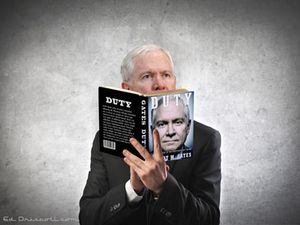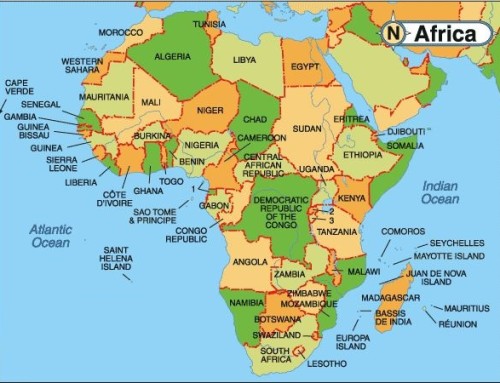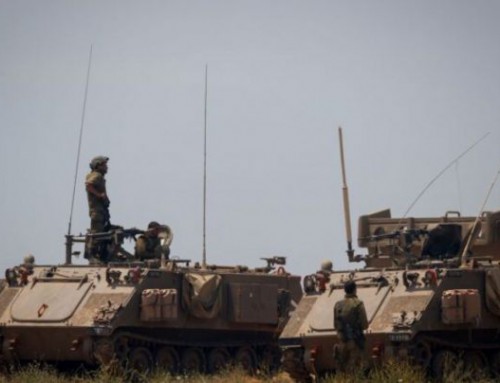 Last week’s release of Bob Gates’ Duty: Memoirs of a Secretary at War was preceded by his publisher’s brilliant public relations campaign hyping the book with tantalizingly provocative excerpts. The brouhaha over the propriety of the timing of the book’s release while Gates’ boss, President Barack Obama, was still in office and the dramatic excerpts especially the criticism of Vice President Joe Biden filled the talk shows. And, now, all that has sunk without trace.
Last week’s release of Bob Gates’ Duty: Memoirs of a Secretary at War was preceded by his publisher’s brilliant public relations campaign hyping the book with tantalizingly provocative excerpts. The brouhaha over the propriety of the timing of the book’s release while Gates’ boss, President Barack Obama, was still in office and the dramatic excerpts especially the criticism of Vice President Joe Biden filled the talk shows. And, now, all that has sunk without trace.A few reactions are in order before getting into the most telling and largely unmentioned aspects of Gates’ blockbuster–but a blockbuster for other reasons. First, too many of the pundits pontificated without reading the book, responding only to excerpts. It should be (if not a constitutional amendment) a moral imperative that, as all members of Congress should read in entirety legislation on which they vote, pundits must read books on which they are bloviating. Second, if the book is read carefully, those excerpts are far from explosive.
Gates may write that Joe Biden has been wrong on virtually all foreign policy issues. But a sentence or two down from that accusation, Gates is self-critical quoting Admiral Mike Mullen, then Chairman of the Joint Chiefs after a meeting with the Vice President. Mullen says to Gates with faux surprise that you were in agreement with the VP. And probably not the only time!
Gates writes about four wars he waged. The first war was fought in Afghanistan and Iraq. The second was against the White House staff. The third was against the Pentagon. And the fourth and most cynical was against a Congress that Gates could not describe in more pejorative terms.
The most stunning revelation in the book in my view was the absence of urgency and complacency inside the Pentagon towards the wars in Afghanistan and Iraq and in adapting to new conditions. Gates acidly argues that the Pentagon knows how to plan for war but not how to fight one. He is almost obsessed with the bureaucratic rigidity of the Pentagon in allowing parochial needs to obscure supporting the troops.
Of many references, two are salutary: mine protected armored vehicles (MRAP’s) and medical evacuation times. Gates maintained that the services were reluctant to buy MRAP’s for troop protection because that meant less money for longer-term programs. Only through his forceful engagement were thousands of MRAP’s procured and as he writes, lives and limbs saved. What Gates does not mention is that more suitable vehicles existed but were not considered.
Regarding medical evacuation times, in Iraq an hour was the required norm for getting wounded troops to field hospitals. In Afghanistan it was two hours. Despite the opposition of the senior military, Gates insisted and succeeded in imposing the one-hour standard in Afghanistan. His argument was irrefutable. To a wounded soldier or marine, two hours were unacceptable.
The second unreported blockbuster in the book was how Gates brilliantly employed strategy in ensuring the successful execution of policy. Whether in shielding politically divisive decisions such as the surges in Iraq and then Afghanistan from opposing forces that could have defeated both or in skillfully advancing senior military officers to higher ranks, Gates’ book is a primer for using strategy and in the nicest sense plotting–unsurprising given Gates’ long CIA service culminating as director.
Last is Gates’ damnation of Congress. While Biden may have caught the headlines, Gates had kind things to say about the vice president. He has nothing kind to say about Congress. And his harshest criticism falls on former Speaker of the House Nancy Pelosi and Senate Majority Leader Harry Reid for placing partisanship and the pettiest of politics above country.
For those seeking government service, this is a must read book. It attempts to be and largely is as objective and analytical as is humanly possible. But there is a flaw.
Gates goes on too much about the trauma and personal tragedy of sending men and women to war in which some are killed and others horribly wounded. To his immense credit, he wonders if this preoccupation with the safety of the troops he orders into battle clouded his judgment. However, no commander worth his or her salt feels much differently. They just are not as vocal.
Gates was Secretary of Defense. But it is the Commander-in-Chief who orders Americans into combat. Lyndon Johnson became so obsessed with Vietnam he refused to run for a second term. In this case, and the major critique of the book is that Gates may protesteth too much.
War said Clausewitz is a clash of wills. Gates demonstrates that nobly. Unfortunately, too much energy is spent on the clash of wills in Washington and not enough on winning the wars at hand.






Comenteaza